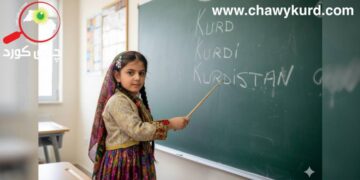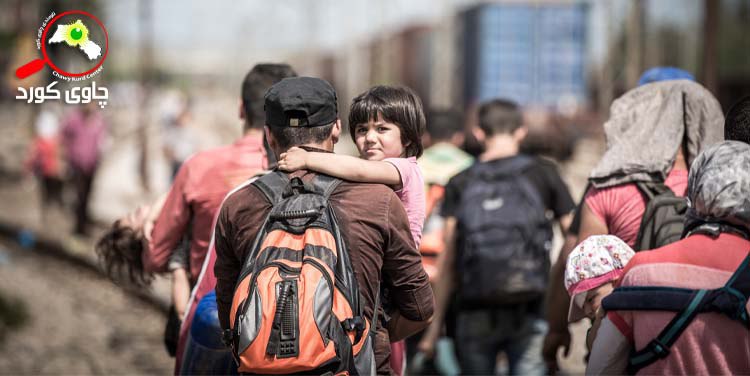What is immigration?”
Since ancient times, humans have been constantly migrating, especially whenever living conditions were not satisfactory. The main factor of ancient migrations was natural reasons. Such as searching for foods and feed their animals. Moreover, in those days, man did not dominate nature. However, now the situation is reversed. People are migrating for work and a better life.
“Kurds and Migration”
For more than two thousand years, Kurds have been without land and their society has developed in an unnatural way. Kurds have always lived in for thousand miles away from their ancestral hometown and they became a part of other habitants. The Kurdish culture in the countries they have been existed, such as Jordan, Lebanon, Egypt, Iranian Khorasan, Istanbul and currently Kurdish migration to European countries are a significant example.
“Migration as a factor of growth and welfare”
With the increasing number of elderly people and the pursuit of long-term growth, there is unexpected competition for imported workers between rich and developing countries.
Labor migration should be a clear strategy of the mother country, while reducing the cost of migration, facilitating migration in fragmented societies, working for the skills needed globally so that citizens can find the best jobs when migrating and will reduce bad affective of skills migration. In order to protect citizens abroad and support them on their return, target countries must support migration, while these countries need the skills and proficiency that migrants acquire, reduce the social impact of migration on them, and support them.
In order migration be a powerful engine of growth, international cooperation is required. Bilateral cooperation may complement the capacity of migrants and target communities to address hopelessness and poverty. Moreover, due to providing necessary costs, there should be listening to all voices discussing migration, the task includes developing countries, the private sector, stakeholders, immigrants and asylum seekers.
For more than a hundred years, Kurds have moved to the capitals of neighboring countries. In South Kurdistan, migration became a significant phenomenon in the 1970s and 1980s. In the 1990s and early 20th century, mass migration to Europe and the outside world continued. This migration has been a factor in the revival and growth of Kurdish nationalism in refugee. The diaspora can be used as a national and economic factor for the revival and development of Kurdish nationalism in exile, because despite the creation of various skills within the Kurdish dimension in these countries, the second and third generations of Kurds whose ancestors were migrant are grew. If the government develops a strategic and long-term plan in this area, they can be used as a cognitive economic dimension in the region. Egypt and Turkey can be considered and their experience in this field can be used. These skills should be a factor for the development and prosperity of Kurdish society.





























































